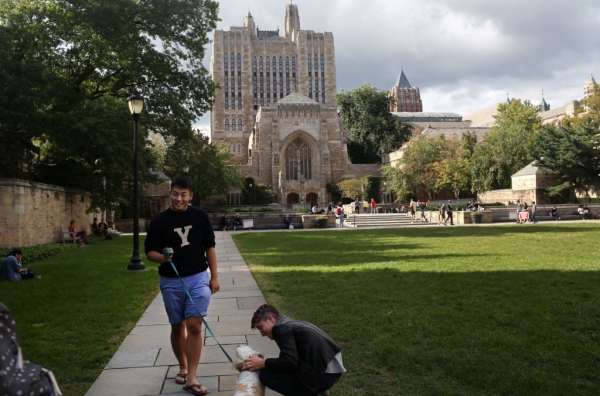Yale University, one of the most prestigious higher education institutions in the United States, has recently announced a monumental change in its admissions policy. The university has decided to adopt a “test-flexible” policy, which will give applicants the option to submit scores from either the SAT or ACT standardized tests, or to choose not to submit standardized test scores at all.
This decision was made in response to the growing body of research that suggests standardized test scores are not always the best indicator of a student’s academic potential. Many studies have shown that these tests can be biased against certain groups of students, such as low-income students and students of color, who may not have access to expensive test preparation resources.
By adopting a test-flexible policy, Yale is joining a growing number of colleges and universities that are reevaluating the role of standardized testing in the admissions process. This shift towards a more whole-person approach to admissions is part of a broader movement towards greater diversity and inclusivity in higher education.
Under the new policy, applicants to Yale will still have the option to submit standardized test scores if they choose to do so. However, those who feel that their scores do not accurately reflect their academic abilities or potential will have the opportunity to withhold their scores without penalty.
In addition to the test-flexible policy, Yale has also announced that it will be expanding its financial aid program to make the university more accessible to students from diverse socioeconomic backgrounds. This combination of policies is a promising step towards creating a more equitable and inclusive admissions process at one of the most prestigious universities in the world.
Yale’s decision to adopt a test-flexible policy is sure to have a ripple effect throughout the world of higher education. As other institutions consider following suit, it is becoming increasingly clear that the traditional reliance on standardized test scores in the admissions process is no longer sustainable. The future of college admissions is likely to be more focused on holistic evaluations of students’ achievements, talents, and potential, rather than just their test scores.
Overall, Yale’s adoption of a test-flexible policy is a positive development that signals a commitment to diversity, equity, and inclusion in higher education. It is a step in the right direction towards creating a more fair and equitable admissions process for all students, regardless of their background or circumstances.



